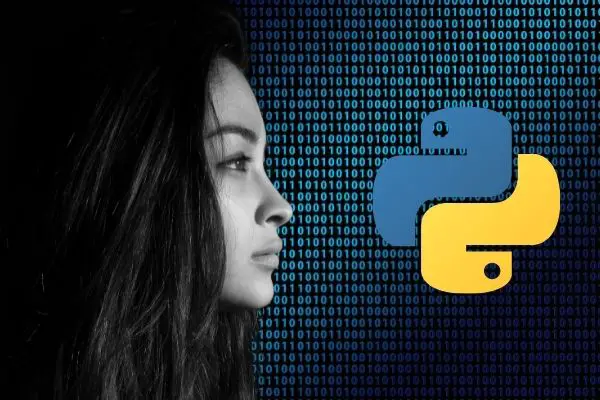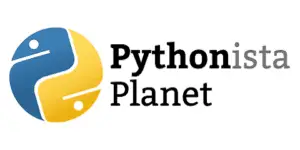Python has found its applications in web development, software development, task automation, web scraping, and data science. It is relatively easy to learn Python compared to other programming languages. So if you want to start a programming career as a novice developer, Python is the best way to go.
A Python developer will be part of a development team that has the skills and knowledge required to code, design, maintain, and deploy Python applications.
Let’s dive right in and look at the roadmap to becoming a Python developer.
How to a Become Python Developer
Here is a step-by-step guide on how to become a Python developer.

1. Decide the Path You Want to Choose
When you start learning a programming language or anything new in life, you need to have a clear goal in your mind. Ask yourself why do you want to learn Python.
As I have mentioned before, Python has a lot of use cases. To make things easy, I have listed below a few general use cases for Python developers. You can choose the path that you like and begin your programming journey.
| Python Use Case | Description |
|---|---|
| Python for Web Development | Python can be used as a back-end language to build web applications. For web development, Python provides two frameworks: Flask and Django. If you are interested in web development, learn the basics of Python. Then, you can choose either Flask or Django to build the back-end of web applications. You can learn the basics of HTML, CSS, and Javascript to build the front-end of web apps. If you learn to build complete web applications (front-end and back-end), you become a full-stack web developer. |
| Python for Data Science | Data science is a rapidly growing field, and Python is the most used programming language in this field. Data science includes areas such as artificial intelligence, machine learning, deep learning, data analysis, data visualization, etc. If you want to become a Python developer in the data science space, you need to learn Python and its data science libraries like numpy, pandas, matplotlib, keras, tensorflow, etc. You also need to be good at mathematics. |
| Python for Task automation | Python can be used to automate various tasks. You need to be good at Python programming and problem-solving to automate tasks. If you are able to find problems or tasks that can be automated, then Python is a great tool to implement the logic. You can use your knowledge of various Python libraries in automating tasks. |
| Python for Web Scraping | Python is widely used for scraping data from websites. To do web scraping, you can learn Python fundamentals and the Beautiful Soup library. |
| Python for Desktop App Development | If you want to build simple GUI (graphical user interface) applications, you can learn Python libraries like Tkinter, EasyGUI, etc. These libraries will help you have a user interface for your Python code, and you can run these apps on your desktops or laptops. |
These are some of the major use cases of Python. Apart from these, Python is used for a lot of other cases, like blockchain, embedded systems, mobile application development, game development, etc.
Pick one role you want to become and plan your learning based on that role. You can also pick a combination of skills as a role (For example, you can be a machine learning developer with web development skills, which will help you deploy your machine learning models on web apps).
2. Enhance Your Python Programming Skills
Once you have a basic idea of what you want to become, it’s time to master Python programming language. Pick a course or a tutorial online and learn the fundamentals of Python.
Learn the basic programming concepts like conditional statements, loops, functions, data types, lists, dictionaries, and object-oriented programming. Make sure you understand the syntax of Python and how the programming logic is built.
Explore different problems that can be solved using Python. Develop software solutions to simple problems.
Try to understand code just by reading it. Try to generate code output in your mind. Derive an understanding of how the code works before you run it. These practices will help you in problem-solving and critical thinking.
3. Acquire Knowledge of Python Libraries
Python has a lot of built-in libraries and methods to do things easily. Learning built-in library methods can be incredibly useful in development as it increases efficiency and reduces time to code.
You can get familiar with the important libraries and in-built methods in Python. You will learn more about these as you go in your programming journey.
Based on the role you have selected, you can master the libraries and frameworks necessary for that role. Learning a framework or library requires practice and patience. So give it some time, write code regularly, and eventually, you will master it.
4. Start Working on Projects
After you grasp the concepts of how to write a solution for a problem, you can extend this approach to real-life projects. Start working on projects that suit your level of expertise.
In the beginning, you can build projects following tutorials step-by-step. Once you become good at it, you can start giving life to your own creative ideas. If you don’t have any ideas for projects, you can choose an existing application and create a clone.
You can list the projects that you have done on your resume. These things will help recruiters understand your experience in Python.
5. Create a Portfolio Containing All the Projects
Code a bunch of projects that are related to your area of interest. Create a portfolio for yourself, for example, a website or a PowerPoint presentation, or something that you can show to recruiters.
List all your projects and explain the details about the projects. They must understand your approach and the knowledge you have gained regarding the projects.
6. Learn to Use Git and GitHub
Upload your project code files onto open source repositories like GitHub and GitLab. You can use your GitHub or GitLab account as a place to showcase your programming skills to recruiters.
You can keep your code private or public. If you keep it public, other programmers who face similar issues or need to work on similar projects can view your code. This way, you can help other programmers also with the code you wrote.
Apart from uploading the code to these platforms, try learning version control using git. Having the knowledge of version control will be a great advantage for you. Find a tutorial or a course and add this skill to your arsenal.
7. Read Other Programmers’ Code
Now that you have some experience in Python coding, you might wonder what level of expertise you’re at currently. To know that, you could try to read other programmers’ code available in open source forums and understand their coding styles.
This way, you can understand the areas you lack knowledge of and improve your code. The more you expose to other people’s code, the more you will understand how to make your code more readable, memory efficient, and faster.
8. Try to Take Up Freelance Projects
All the above steps have prepared you to write Python code and solve problems. How would you put that knowledge to test in the real world? Take up freelance projects and start working for clients.
You must understand the client’s requirements, write code to solve their problems, alter code according to the client’s changes, and deployment and maintenance of the application. Freelancing will help hone these skills and gets you ready to apply for a full-time job in Python development.
Some of the recommended websites that you can apply for freelancing are Fiverr, Upwork, etc.
9. Follow a Daily Schedule for Coding Practice
Keep writing code consistently and improve your skills. This applies even after you land a job in Python development.
You can use various resources like competitive coding platforms (LeetCode, HackerRank, etc.) or create fun projects or games. Regular practice of Python will improve coding fluency and critical thinking.
You can check out this article to find some basic exercises to increase your Python proficiency.
10. Keep Your Resume and Profile Updated on Job Portals
After your reach a new milestone in your Python journey, update the same in your resume. I recommend you upload your resume to various job portals and keep your profile updated with all of your relevant projects.
Also, make sure you have a great LinkedIn profile with all relevant information.
Keep applying for jobs. You don’t know what you don’t know. So don’t be ignorant. Do some research, and I’m sure you will find plenty of job opportunities if you are a skilled developer.
How Much Do Python Developers Make?
Some of you might be wondering, is all that work worth it? Will I get a decent salary for the work I do? Will I get to switch careers in the future if Python might get outdated?
Being a python developer in our modern world is worth it. The average salary across the US for a junior Python developer is $74,435 [Source]. With experience, the salary package increases substantially.
Final Thoughts
If you are an aspiring programmer trying to learn Python, now you must have an idea about the various fields of application of Python. By following the roadmap, you can become a successful Python developer and monetize your skills.
Now it’s time for you to go for the kill. Learn the skills and start your Python programming journey. All the best for your future coding endeavors.

Ashwin Joy’s comprehensive guide on becoming a Python developer is truly enlightening. His step-by-step breakdown, from learning the basics to mastering advanced concepts, offers aspiring developers a clear roadmap. Python’s versatility and demand make it a fantastic choice for anyone aiming to enter the tech world. As someone looking to hire Python developers, I find this guide particularly valuable. It highlights the skills and knowledge one should possess, making my recruitment process more effective. With Python’s growing prominence, it’s crucial to have resources like this to ensure I’m bringing in top-notch talent. Kudos to Ashwin for sharing such an informative guide! It’s a must-read for both aspiring developers and hiring managers like me.